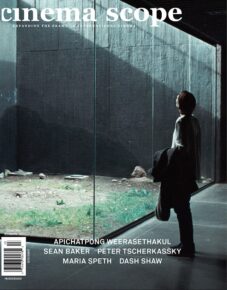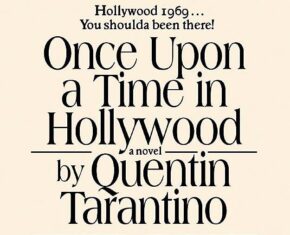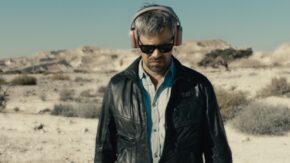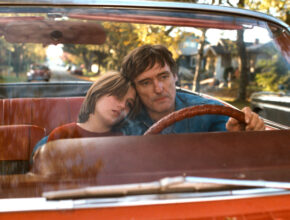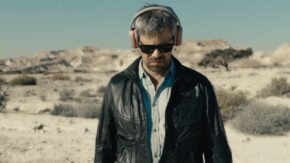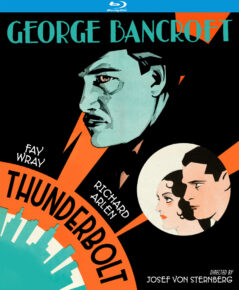CS88
Cinema Scope Issue 88 Table of Contents
By Cinema Scope | 09/22/2021 | CS88, From Cinema Scope Magazine, Table of Contents
Interviews I Remember Everything: Apichatpong Weerasethakul’s Memoria by Jordan Cronk Do the Hustle: Sean Baker on Red Rocket by Blake Williams Cartooning Unlimited: Dash Shaw on Cryptozoo and Discipline by Sean Rogers Features To Sir, with Love: Maria Speth’s Mr. Bachmann and His Class by Michael Sicinski Next Stop Eternity Peter Tscherkassky’s Train Again and…
Read More → Revising Revisionism—Quentin Tarantino’s Once Upon a Time in Hollywood: A Novel
By Adam Nayman | 09/20/2021 | Books, CS88, From Cinema Scope Magazine
“This is the unwieldy version of the movie,” said Quentin Tarantino on the Pure Cinema podcast in June about his new 400-page novelization of Once Upon a Time…in Hollywood (2019). “Unwieldy” is indeed the right adjective for QT’s new make-work project, and it’s also probably the last word on his creative sensibility.
Read More → The Tsugua Diaries (Maureen Fazendeiro and Miguel Gomes, Portugal)
By Robert Koehler | 09/20/2021 | CS88, Festivals, From Cinema Scope Magazine, Spotlight
2020 may go down as The Year From Hell, but at least it gave us The Tsugua Diaries. Rudely interrupted by the COVID pandemic in proceeding with not one, but two productions—Savagery and Grand Tour—Maureen Fazendeiro and Miguel Gomes opted to do exactly the opposite of what everyone, including undoubtedly the Portuguese Film Commission, expected: they went and made a movie, deciding, just like the NBA, to create a bubble environment (at a farmhouse compound near the Atlantic coast) and hope for the best.
Read More → France (Bruno Dumont, France)
By Lawrence Garcia | 09/20/2021 | CS88, Festivals, From Cinema Scope Magazine, Spotlight
the seven years since P’tit Quinquin, it has become impossible to continue tagging Bruno Dumont with the longstanding clichés of Bresson criticism. Epithets like “ascetic,” “severe,” “punishing”—already limited descriptors of his first two works, La vie de Jésus (1997) and L’humanité (1999)—have only become more obviously incapable of describing Dumont’s recent films, from the carnivalesque contortions of Ma Loute (2016) to the musical extremes of his Jeanne d’Arc movies.
Read More → Ahed’s Knee (Nadav Lapid, France/Israel/Germany)
By James Lattimer | 09/20/2021 | CS88, Festivals, From Cinema Scope Magazine, Spotlight
might leave a bigger scar. The Kindergarten Teacher (2014) and Synonyms (2019) already flirted with autobiography, but his fourth feature pushes forward into full autofiction, sending a director named Y. (Avshalom Pollak) to the Arava desert for a screening of one of his films, only to discover that open discussion of its content is frowned upon.
Read More → Titane (Julie Ducournau, France/Belgium)
By Phil Coldiron | 09/20/2021 | CS88, Festivals, From Cinema Scope Magazine, Spotlight
The erotic history of the car in cinema extends back nearly to the dawn of the medium: there’s Chaplin, in 1914, asserting in his first film that he’s a more enticing view than the soapbox derbies at the Kid Auto Races (no engines yet).
Read More → Cannes 2021: L’empire contre attack
By Mark Peranson | 09/20/2021 | CS88, Festivals, From Cinema Scope Magazine, Spotlight
France this past July, the answer is a resounding “no.” And thankfully it was a sweltering summer, for if an event like the one Cannes mounted was to take place mostly with indoor dining, the film world would see numbers the size of Florida.
Read More → Trouble Up North: Dennis Hopper’s Out of the Blue
By Kate Rennebohm | 09/20/2021 | CS88, Features, From Cinema Scope Magazine
While parental absence is a key trope of so many of the Spielberg(ian) youth films of 1980s Hollywood cinema—not only E.T. (1982), but also The Outsiders (1983), Explorers (1985), The Goonies (1985), Stand by Me (1986), The Monster Squad (1987), et al.—the aloneness of the young protagonists is always more a matter of narrative pretext than actual subject.
Read More → To Sir, with Love: Maria Speth’s Mr. Bachmann and His Class
By Michael Sicinski | 09/20/2021 | CS88, Features, From Cinema Scope Magazine
way through uncertain, liminal spaces. At the same time, the documentary marks a sharp turn in Speth’s filmmaking approach, something all the more notable given the remarkable consistency of her first four films.
Read More → I Remember Everything: Apichatpong Weerasethakul’s Memoria
By Jordan Cronk | 09/20/2021 | CS88, From Cinema Scope Magazine, Interviews
Memoria arrives amidst a flurry of activity for the 51-year-old Thai filmmaker. In addition to the feature and the book, there’s Night Colonies, his contribution to the omnibus project The Year of the Everlasting Storm (which also premiered at Cannes); a solo exhibition of his video and installation work at the IAC Villeurbanne; and a career-spanning retrospective at FIDMarseille, where the director was on hand just days after Cannes to receive the festival’s Grand Prix d’Honneur.
Read More → Night Raiders (Danis Goulet, Canada/New Zealand)
By Katherine Connell | 09/20/2021 | CS88, Currency, From Cinema Scope Magazine
apocalyptic cityscape backdrops an anti-authoritarian alliance between two characters from traditional Cree stories (Wesakechak and Weetigo). Goulet’s first feature, Night Raiders, not only returns to the realm of dystopia, but also shows the degree to which its creator’s interest in the genre goes beyond the use of futuristic settings as a mere aesthetic surface.
Read More → Exploded View | Suzan Pitt
By Chuck Stephens | 09/20/2021 | CS88, Exploded View, Festivals, From Cinema Scope Magazine
Suzan Pitt’s Asparagus took four. A handcrafted surrealist masterpiece and in every sense a labour of l’amour fou, the extraordinary Asparagus—in a which a femme sans visage takes pleasure in her garden and shares the bounty of her unearthly delights with a mesmerized audience, all before performing fellatio on an alchemical assortment of possibilities—was animated and assembled between 1974 and 1978.
Read More → Issue 88 Editor’s Note
By Mark Peranson | 09/20/2021 | Columns, CS88, From Cinema Scope Magazine
After a year’s hiatus from the Croisette, we’re back with our first ever fall issue devoted to Cannes, which took place in July in the middle of a pandemic, in case you forgot. Because it was summer and travel was permitted, I followed the many, many movies I saw at Cannes with a relaxing vacation on a COVID-free, beach-heavy island, where the only film I watched was, appropriately, M. Night Shyamalan’s Old.
Read More → Next Stop Eternity: Peter Tscherkassky’s Train Again and the Love Story of Railroads and Film
By Christoph Huber | 09/20/2021 | CS88, From Cinema Scope Magazine
Peter Tscherkassky’s 20-minute film Train Again unearths some new materialist marvels while expanding on those typically Tscherkasskian sensations the Austrian filmmaker achieves through the technique of contact printing, in which found footage is copied by hand, frame by frame, onto unexposed film stock.
Read More → Global Discoveries on DVD: Heroines, Heroes, Dogs, Filmmakers
By Jonathan Rosenbaum | 09/09/2021 | CS88, DVD Reviews, From Cinema Scope Magazine
The way the Internet Movie Database tells it, two pairs of writerly brothers worked with Josef von Sternberg on his first talkie, Thunderbolt (1929), recently released on a Kino Lorber Blu-ray (with a knowledgeable audio commentary by Nick Pinkerton that I’ve so far only sampled). Charles and Jules Furthman are both credited for “story,” though Jules, the younger of the two, gets a screen credit for the actual script; Herman J. Mankiewicz is credited for “dialogue,” while his younger brother, Joseph L., is credited for “titles.”
Read More → 
